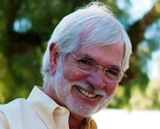Pardons. A president’s power to pardon is essentially absolute and legally unreviewable; its only constraint is the threat of impeachment. With impeachment "off the table" and with the holidays and the end of the president’s term approaching, the likelihood of mass pardons increases. There is a family precedent. With less than a month remaining in his term in 1992, President Bush’s father pardoned Caspar Weinberger, his former Secretary of Defense, and five others for the crimes they committed during the Iran-Contra fiasco.
The political pardons by Bush Sr. cancelled one conviction, three pending guilty pleas and two pending trials. Weinberger’s trial, which included charges of lying to Congress, was scheduled to commence within days of the pardon. The trial would have produced "evidence of a conspiracy among the highest ranking Reagan Administration officials to lie to Congress and the American public." By issuing the pardons, Bush Sr., who had refused to turn over his own "highly relevant contemporaneous notes," avoiding being called as a witness to testify under an oath about how he had come to be "out of the loop."
The Constitution prohibits a president from interfering with the impeachment process; however, it is unclear if Bush can pardon his own crimes to avoid criminal prosecution. One scenario being circulated is for Bush to issue pardons to everyone conceivably subject to criminal prosecution arising out of their service in his administration, including Vice President Cheney, and for Bush to then resign from office. President Cheney could then pardon "former president" Bush for any and all crimes he committed while in office.
International Law. In one of his last official acts, President Clinton signed the "Rome" treaty establishing the International Criminal Court in the Netherlands to prosecute individuals accused of mass murders, war crimes, and other gross human rights violations. The treaty became effective on July 1, 2002; however, one of President Bush’s first acts was to "unsign" the treaty on behalf of the United States.
Even though George Bush rejected the jurisdiction of the International Court, the Court has not rejected jurisdiction over him. Accordingly, while the United States can refuse to arrest and extradite a former president charged with war crimes, the treaty has been signed by 139 other sovereign nations and ratified by at least 107, all of which are legally committed to prosecuting war criminals whenever their own country refuses to or cannot do so.
Thus, while Bush may presently enjoy cutting brush in Crawford, Texas, his ability to vacation overseas might be severely curtailed in the future during his retirement years. Moreover, depending upon who the president is at the time charges are brought against Bush by the International Court, the United States could hand over Bush to the Court for prosecution.
Summation
From childhood, George Bush displayed a disturbing lack of empathy. "Slapped around" by his mother as a boy, Bush enjoyed blowing up live frogs by putting firecrackers in their mouths and shooting at his brother with a bb gun. As he grew older, Bush presided over and defended the branding of pledges to his fraternity at Yale using red-hot wires and cigarettes; he became addicted to alcohol; he was arrested for drunk driving and he abused illegal drugs.During the Vietnam War, Bush avoided military combat and was absent without leave from his stateside reserve assignment for more than a year. Using his father’s influence to gain political office, he smirked, giggled, and displayed other inappropriate behavior in response to the most serious of subjects.
Untreated, Bush’s sociopathy evolved as he achieved command of the most powerful military on earth and used its weapons to commit mass murder. Whenever a roadside IED explodes in Iraq and another American soldier dies, every time another wedding party is mistakenly bombed and children die, George W. Bush and Dick Cheney commit murder. Are we not willing accomplices if we continue to allow these crimes to continue?
Those whom we empower by our vote to either serve us in Congress or to lead our nation as president have a duty to use the power we give them to ensure accountability for its abuse. They have a duty to focus and to maintain attention on the most egregious and deadly violations of our laws and to not allow murder to go unpunished. They have a duty to do whatever it takes to make such crimes the headline of every newspaper and the lead of every radio, television and cable news program during every news cycle until such time as the murderers who occupy our nation’s highest offices are held fully accountable.
(Note: You can view every article as one long page if you sign up as an Advocate Member, or higher).





